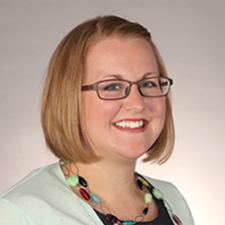New Poll Finds Dual Support for Minnesota Public Schools and New School Choice Options
INDIANAPOLIS (April 15, 2015) – A new survey by Braun Research, Inc. finds Minnesota voters like their public schools but still support education savings accounts—a school choice option now before the state legislature.
And support for school choice in the Twin Cities was just as strong as the rest of the state.
The poll, conducted this winter for the Friedman Foundation for Educational Choice, showed two out of three voters in the state and the Twin Cities gave the state’s public schools a positive rating with 65 percent ranking them good or excellent.
However, private schools still earned better marks from voters than public schools. Although 56 percent of the state’s voters said they would give public schools an A or B grade, 83 percent said they would grade private or parochial schools with an A or B.
“Minnesota voters are proud of their public schools, but that doesn’t mean they don’t believe in offering children options beyond the school assigned to them based on their home address,” said Robert Enlow, President and CEO of the Friedman Foundation for Educational Choice. “It appears they value quality education for all kids—no matter the school type—over loyalty to a certain sector or system.”
Minnesota public school students have consistently scored high in national standardized tests, including the National Assessment of Educational Progress. The state was a pioneer in educational choice as it became the first state in the nation to allow tax deductions for a family’s educational expenses back in 1955. Minnesota also enacted the nation’s first public charter school law almost 25 years ago.
During the 2015 legislative session, Minnesota lawmakers are considering a newer type of school choice program called education savings accounts, or ESAs. ESAs allow families to receive their education dollars in a government-authorized savings account with restricted, but multiple uses. Parents could use the money for private school tuition, tutoring, educational therapies, or any combination of approved expenses that meets a child’s educational or social service needs. Leftover funds can be rolled over an even saved for future educational expenses, including college.
The Minnesota poll found this about ESAs:
- Nearly six out of 10 Minnesota voters (58 percent) said they support ESAs.
- Parents of school-age children in the state were more likely to support ESAs than those without children in school (65 percent compared to 56 percent).
- Majorities of Minnesota Republicans and Democrats both supported the concept of ESAs (65 percent vs. 54 percent).
- Low-income voters in Minnesota were more likely to support the new school choice concept than high-income earners (66 percent vs. 53 percent).
- Four out of five voters (80 percent) statewide said they support a policy idea to provide ESAs to children with special needs—the same eligibility restriction of the ESA bill being considered by the state legislature.
Lawmakers are also considering a proposal to create tax-credit scholarships, which provide individuals and businesses tax credits for their donations to independent non-profit scholarship granting organizations. There was also significant among Minnesota voters for the concept of creating a tax-credit scholarship program to foster more school choice for children.
- Two out of three voters support the concept of tax-credit scholarships (65 percent statewide and 63 percent in the Twin Cities).
- Republicans, Democrats, and Independents liked the tax-credit scholarship concept (76 percent of Republicans, 62 percent of Democrats, 60 percent of Independents).
- Low-income earners in the state were more likely to support the concept compared to high-income workers (74 percent compared to 58 percent).
Braun Research, Inc. has been used by research firms such as the Gallup Organization and the Pew Research Center. Its Friedman survey included a statistically representative sample of registered voters in the state, and 606 interviews were conducted from Feb. 7 to 24, 2015. It included an oversampling of voters from the Minneapolis/St. Paul area. The margin of error for the statewide sample is +/- 4 percentage points. The survey’s questionnaire, results, and methodology are available here.
About the Friedman Foundation for Educational Choice
The Friedman Foundation for Educational Choice is a 501(c)(3) nonprofit and nonpartisan organization, solely dedicated to advancing Milton and Rose D. Friedman’s vision of school choice for all children. First established as the Milton and Rose D. Friedman Foundation in 1996, the Foundation promotes school choice as the most effective and equitable way to improve the quality of K–12 education, and outreach on the vital issues and implications related to school choice.
More information contact:
Susan L. Meyers
National Media Relations Director
Friedman Foundation for Educational Choice
susan@edchoice.org 404-518-2271 (cell)




